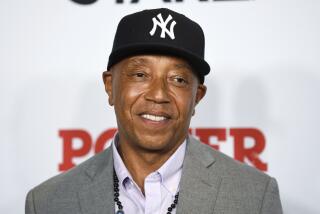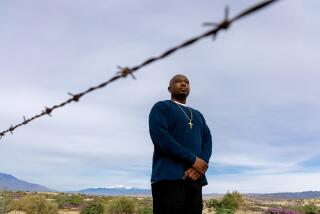3 Simpson Plaintiffs to Pursue Separate Claims
- Share via
Opening the door to a scramble for O.J. Simpson’s assets, a judge decided Monday that the three plaintiffs who won a combined $33.5-million verdict against Simpson should be free to pursue their claims independently.
Superior Court Judge Hiroshi Fujisaki signed separate judgments for each of the three victorious plaintiffs. As a result, the plaintiffs will not have to coordinate their efforts to collect from Simpson. Instead, they can act on their own--and whoever gets the paperwork done first will have first dibs on assets such as Simpson’s home, car or golf clubs.
“There could be a very unseemly race,” said Los Angeles business attorney Richard W. Brunette Jr.
All collection efforts are on hold, however, for at least 10 days. Fujisaki ordered that delay to give the defense a chance to prepare appeals motions.
Defense attorney Daniel Leonard, who is handling Simpson’s appeals, could not be reached for comment Monday. But Leonard has previously indicated that he will ask Fujisaki for a new trial. He also plans to urge the judge to reduce the huge amount of the damages.
Fujisaki’s signatures on the judgments do not imply that he endorses the jury verdicts. He could still accept the defense’s arguments on appeal. The judge’s signatures are important only because they start the clock running for post-trial motions: The defense now has 15 days to file its appeal.
“This doesn’t really put a punctuation mark on [the case] because you want to see what happens in the post-trial phase,” said Michael Brewer, who represented plaintiff Sharon Rufo, the mother of slaying victim Ronald Lyle Goldman. “You’re always a little anxious until then because obviously the jury verdict won’t make any difference if the judge orders a new trial.”
The judgments Fujisaki signed Monday order Simpson to pay Fred Goldman $13.475 million, Rufo $7.525 million and the estate of Nicole Brown Simpson $12.5 million. The children of Nicole and O.J. Simpson are the beneficiaries of her estate.
In order to collect any money, the plaintiffs must file various documents at the Santa Monica courthouse, with the secretary of state in Sacramento, and with the recorders’ offices of the various counties where Simpson holds property.
All three locales work on a first-come, first-served basis. So if, for example, Goldman submitted the papers to seize Simpson’s bank account at 9 a.m. and the Brown estate filed at 9:02 a.m., Goldman would have the sole right to the money, according to Encino business attorney Ronald Michelman.
(On the other hand, creditors who long ago put liens on Simpson’s property--including his attorneys--are already in line ahead of Goldman, Rufo and the Simpson children.)
In typical cases, a judge will order the winners to delay on collecting money until after the routine post-trial motions are disposed of--a process that usually takes about two months. Fujisaki may well do that in this case, analysts said.
However, if Simpson then chooses to appeal to a higher court, he cannot put off his creditors indefinitely. To keep them from collecting his money, he would have to post a bond of more than $50 million in cash and collateral, money he says he does not have.
Meanwhile, despite the separate judgments signed Monday, the plaintiffs’ attorneys expressed confidence that they would not end up fighting one another as they scrap for Simpson’s money.
Goldman attorney Peter Gelblum described himself as “quite optimistic” that the plaintiffs would figure out a way to cooperate. “I’m confident we can work something out,” he said.
More to Read
Inside the business of entertainment
The Wide Shot brings you news, analysis and insights on everything from streaming wars to production — and what it all means for the future.
You may occasionally receive promotional content from the Los Angeles Times.










